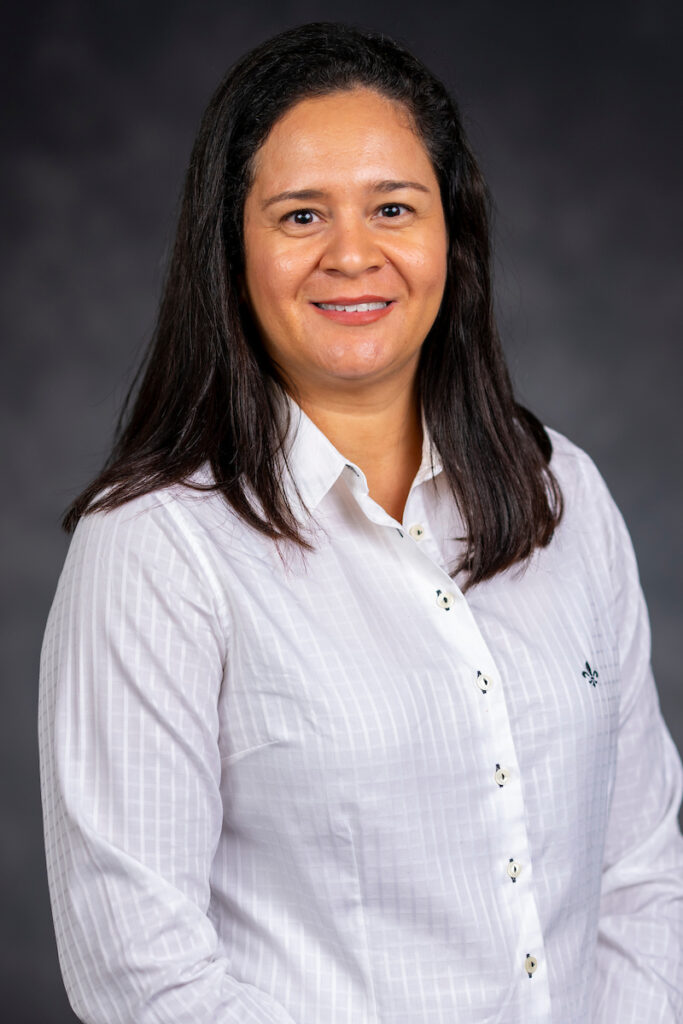Marina Rondon joins Texas A&M AgriLife to support plant pathology research and extension efforts
Rondon brings nematode management expertise to Lubbock

Marina Rondon, Ph.D., is bringing over a decade of plant pathology experience to her new role as a Texas A&M AgriLife Extension Service specialist at the Texas A&M AgriLife Research and Extension Center at Lubbock, where she’ll help producers in Texas’ South Plains protect their crops.
As an AgriLife Extension specialist and assistant professor within the Texas A&M College of Agriculture and Life Sciences Department of Plant Pathology and Microbiology, Rondon will apply her expertise to protect and improve cotton, peanuts and other important regional crops. Her position will be 75% AgriLife Extension and 25% Texas A&M AgriLife Research.
After spending most of her career in primarily research-focused positions in academia and private industry, Rondon said she’s excited to transition to a primarily outreach-centered role.
“I chose this career because of my passion for plant pathology, and I want to make a meaningful impact for producers,” she said. “I want to bring them something they can use for practical applications in the fields, and that’s my main goal with this position.”
Roots in plant pathology
Rondon’s journey into plant pathology began in her home country of Brazil, where she earned bachelor’s and master’s degrees in agronomy. She first developed her curiosity for plant pathology while working in a plant diagnostic lab during her undergraduate studies, where she sought to identify disease sources from farmers’ samples.
After graduating with her master’s degree, she worked in the private industry to improve disease management strategies and develop disease-resistant cotton and soybean cultivars. She then came to the U.S. for a doctoral degree in plant pathology from Auburn University, which she completed in 2020.
As a graduate researcher and postdoctoral fellow, Rondon mainly studied plant-parasitic nematodes and fungi, which will also be her central focus as an AgriLife Extension specialist.
High hopes for the South Plains
Rondon’s transition to Texas A&M AgriLife marks a new chapter in her career, and she aims to make a meaningful impact on Texas agriculture.
In the Lubbock area, nematodes and fungi can lower yields, quality and profitability of crops like cotton and peanuts, which are essential to the region’s agricultural economy and producers’ operational sustainability. Rondon will work to address this challenge on the research side by identifying new strategies for combating these pathogens. Strategies might include developing new fungicides and nematicides, introducing resistant cultivars, and employing seed treatments to enhance plant vigor.
Additionally, her AgriLife Extension efforts will involve working directly with growers and developing educational materials on best practices. Rondon said she is especially excited about the chance to empower farmers and stakeholders with science-based data and knowledge.
“I joined AgriLife Extension because I believe in the transformative power of bridging research with practical application in the field,” she said. “AgriLife Extension provides a unique platform to directly impact growers and stakeholders by translating research into actionable solutions that enhance agricultural sustainability and productivity.”





